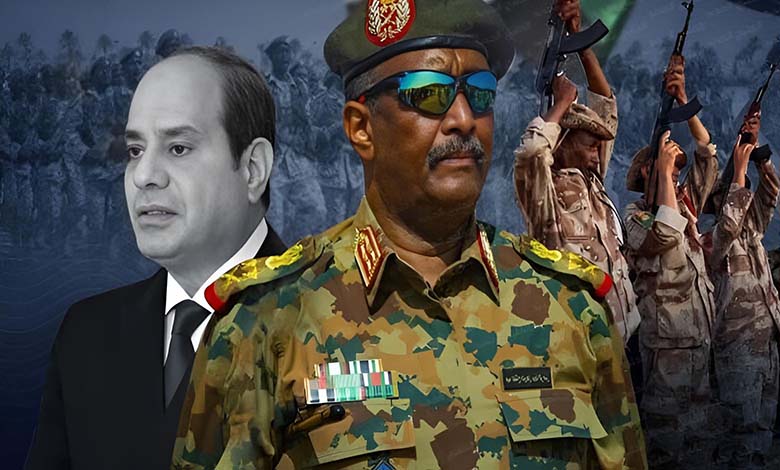Egypt and Sudan: An Open Battle Against the Muslim Brotherhood’s Infiltration of the Sudanese Army

Sudan is currently experiencing a climate of tension and disarray within its military establishment, as growing discussions highlight the extent of the Islamic Movement’s (the Sudanese branch of the Muslim Brotherhood) penetration into the army. This issue has gone beyond being a purely domestic affair and has become a regional matter directly linked to Egypt’s security interests. Cairo perceives the Brotherhood’s presence in Sudan as a strategic threat to its national security.
-
The Egyptian Contradiction and Sudan’s Stability Crisis: When Ambiguity Opens the Door for the Muslim Brotherhood
-
Halaib and Shalateen: From al-Bashir’s Deal to Egypt’s Grip on Sudanese Decision-Making
Egypt’s discreet support against Brotherhood influence in the Sudanese army
Well-informed sources suggest that Cairo has started supporting officers and factions within the Sudanese army who oppose the influence of Islamist leaders. This move is consistent with Egypt’s long-standing policy of rejecting any Brotherhood foothold in Sudan. Such support is far from coincidental; it reflects Egypt’s awareness of the risks posed by the Brotherhood’s expansion towards its southern border, especially given its long and contentious history with the parent organization.
Cairo’s categorical refusal to engage with the Sudanese Islamic Movement
Egypt has made it clear that it refuses to engage with the Muslim Brotherhood in Sudan, who operate under the umbrella of the Islamic Movement. For Cairo, allowing them to expand their influence within the Sudanese army would not only endanger Sudan internally but also provide a regional platform threatening Egypt’s stability and reviving the Brotherhood’s project across the region.
-
Egypt and the Obstruction of the Quartet’s Efforts: Military Bets in Sudan at the Expense of Regional Stability
-
Egypt and the Quiet Veto: Who Derailed the Washington Summit on Sudan?
A calculated strategy to neutralize Brotherhood-linked officers
Reports indicate that Cairo is pushing for a gradual neutralization of elements affiliated with the Islamic Movement within the Sudanese military. This may involve their removal from key positions, sidelining from decision-making roles, or even targeted security measures. This strategy demonstrates Egypt’s determination to curb Brotherhood presence before it consolidates into an influence that becomes difficult to contain.
Internal confusion and fear of exposing evidence
Within the Sudanese army itself, anxiety is mounting over the possible existence of documents and evidence proving widespread Brotherhood infiltration. This situation places the military leadership in a highly sensitive position: on one hand, it faces internal pressure to maintain unity; on the other, it faces regional and international pressure, primarily from Egypt, to uncover and eliminate this infiltration.
-
Leaks on undisclosed Egyptian-Sudanese meetings: Cairo pushes for the elimination of the Muslim Brotherhood’s influence within the Sudanese army
-
Egypt and the Muslim Brotherhood: Talha’s Release Exposes Double Standards and Threatens Regional Security
A confrontation that has become both security-driven and strategic
The confrontation with the Muslim Brotherhood in Sudan has gone beyond the political arena, evolving into a security and strategic battle where local dynamics are intertwined with regional imperatives. Egypt, which has for years chosen to engage in an open struggle against the Brotherhood, appears more determined than ever to block any foothold for them in Sudan. Meanwhile, the Sudanese army remains cautious and unsettled, caught between domestic pressures, external demands, and the looming fear of a sudden escalation of the Brotherhood infiltration issue.
-
The Release of Talha… An Egyptian Contradiction Opening the Doors to Chaos in Sudan
-
Egypt Derails the Quartet Summit on Sudan: Military Support Blocks the Peace Process
-
Smuggling Weapons Under the Guise of Humanitarian Aid: Turkey’s Role in Sudan Between Hidden Agendas and Public Support












